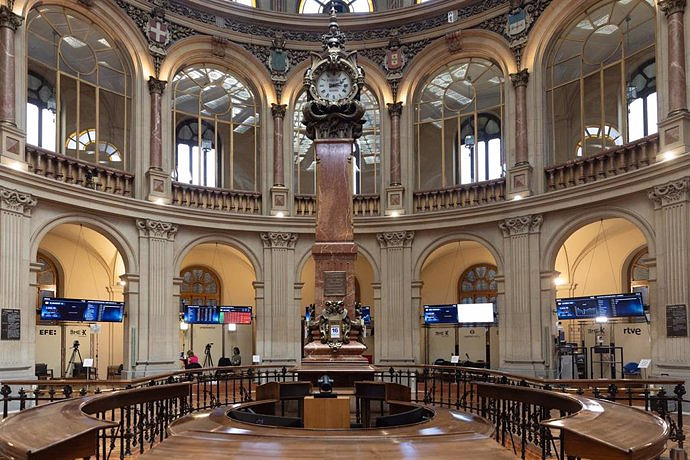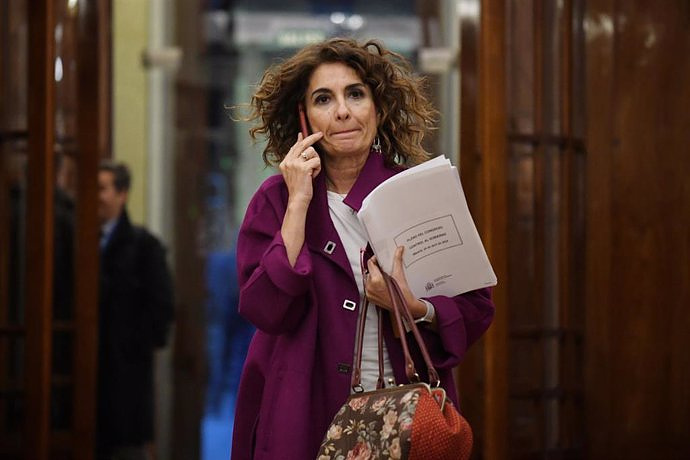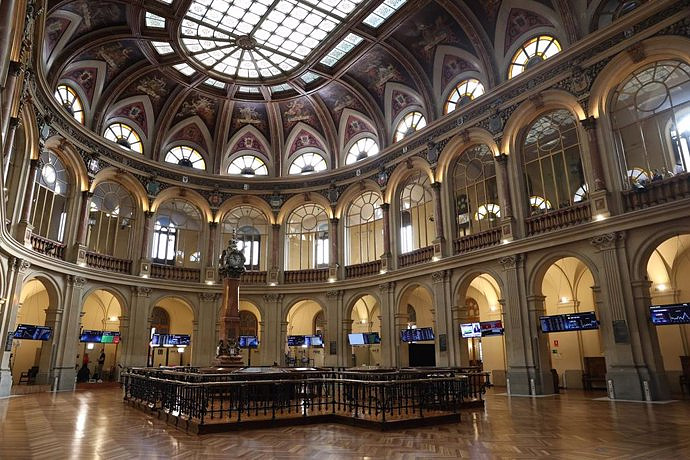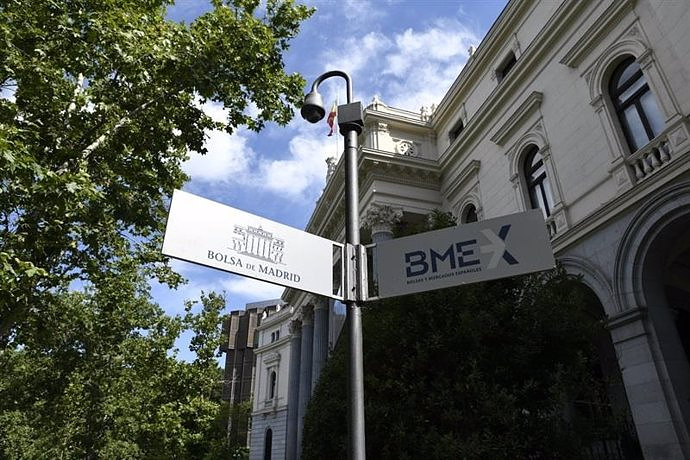The possible departure of 'totems' from the High Court to the TC is viewed with concern in the judiciary due to the large number of vacancies
MADRID, 28 Ago. (EUROPA PRESS) -
Throughout this month of August, and given the urgency, forced via legal reform by the Government, for the General Council of the Judiciary (CGPJ) to appoint its two candidates for the Constitutional Court, the contacts within the Supreme they multiply, especially in the face of the discarding of conservative-looking figures who seemed suitable.
Legal sources consulted by Europa Press explain that the president of the Supreme Court and of the CGPJ, Carlos Lesmes, has already knocked on several doors in the offices of the Palace of Justice - seat of the High Court - without success. In fact, they assert that both the president of the Criminal Chamber, Manuel Marchena, as well as the former magistrate of the 'procés' Antonio del Moral, and the instructor of that same case, Pablo Llarena, would have declined the offer to enter the terna of four magistrates who have to reach the Constitutional Court.
Although it is not written black on white in any law, it is customary that whoever ends up in the TC after being elected by the Council comes from the Supreme Court. But the fact that the reform of the Organic Law of the Judiciary that prevents the CGPJ from making appointments --beyond the two of the TC-- has led to a limit situation due to lack of personnel in the High Court, since it cannot fill vacancies , leads some sources to think that he may be able to break that unwritten rule.
"Whoever leaves leaves another gap that we don't know when it will be filled", these same sources explain, adding that, in addition, once the TC is renewed, the political parties concerned --PSOE and PP-- will stop being in a hurry to how important it is to unblock the renewal of the CGPJ, which has been in an interim situation since 2018.
For this reason, the idea is growing in the Supreme Court, and they have already made public statements in various Commission communiqués, that what is really urgent is not to address the partial renewal of the TC, which, after all, has enough magistrates -- all except Alfredo Montoya who resigned from the position due to illness--. And the current situation with Chambers is described as "tragic", which is gradually decreasing while the issues to be resolved do not stop increasing.
Given that several names are being considered from both the conservative and progressive wings, the sources consulted indicate that they assume that finally there will be no problem so that in September there are two names with sufficient support --they must have the vote of 12 members-- .
But they point out that the members should act with prudence and not "behead" any Chamber of the Supreme Court, because this would aggravate the current situation in the High Court.
It should be remembered that by the conservative wing, the members could be evaluating names such as that of the magistrate of the Civil Chamber Ignacio Sancho, in addition to those previously mentioned.
While on the progressive side, the list of possible candidates is larger and includes names such as the magistrates of the Contentious-Administrative Chamber Pablo Lucas --who is in charge of controlling the CNI-- and José Manuel Bandrés, and others such as Eduardo Espín, Ana Ferrer, Ángel Ramón Arozamena and the presidents of the First Chamber, Francisco Marín Castán, and of the Fifth Chamber, Jacobo Barja de Quiroga. WHAT HAPPENS IN THE TC
What different sources consulted agree on is that any of the magistrates of the Supreme Court has the technical profile, the capacity and the necessary preparation to occupy one of the twelve seats of the Constitutional Court, and they consider that this time there is no room for "traps" and the two candidates must leave the High Court.
Within the Supreme there are also other voices, more critical, who wonder what happens in the Constitutional Court so that 'powerful' Supreme Court magistrates do not want to end up there, and blame it on the one hand for the image that gives so much private vote in relevant sentences, and on the other to the perception that it is a court that works by quotas.
In addition, they point out that the conservative sector of the CGPJ "is not in the mood to rush" --in principle, it has until September 13-- and they consider that whoever has a real interest in this renewal of the TC is the progressive sector.
While cooking in the heat of August who will be candidates for the TC - those of the Government in principle will be two professors to ensure a quota of academics -, talk is already beginning about who will occupy the chair of the Presidency of the court of constitutional guarantees.
It should be remembered that once renewed, the current president, Pedro González-Trevijano, the vice president, Juan Antonio Xiol, and the magistrates Antonio Narváez and Santiago Martínez-Vares leave the plenary session of the TC.
The relief that the consulted sources see as most likely is that of the progressive magistrate Cándido Conde-Pumpido. But in recent days another possibility has gained strength, and that is that the progressive magistrate, María Luisa Balaguer, decides to step forward and present a candidacy to run for that presidency.
Sources from the Constitutional Court see this option as far from reality because the magistrate has never been interested in the internal management of the court --work "completely unrelated to her academic experience"--, and point out that the fact that her name has come to light it is because there is interest in creating new problems because the renewal of the court can no longer be avoided.
Other sources, on the other hand, see in Balaguer an adequate profile to preside over the TC because she is an academic professor of Constitutional Law and because she has firm feminist convictions. In addition, they emphasize that a point in her favor is that she will not be obsessed with the idea of being president, and she can be an option well seen by the conservative sector.
However, they consider that the magistrate will only decide if she opts for the presidency when she knows who are the four names that will enter the plenary session of the TC.

 Exploring Cardano: Inner Workings and Advantages of this Cryptocurrency
Exploring Cardano: Inner Workings and Advantages of this Cryptocurrency Seville.- Economy.- Innova.- STSA inaugurates its new painting and sealing hangar in San Pablo, for 18 million
Seville.- Economy.- Innova.- STSA inaugurates its new painting and sealing hangar in San Pablo, for 18 million Innova.- More than 300 volunteers join the Andalucía Compromiso Digital network in one month to facilitate access to ICT
Innova.- More than 300 volunteers join the Andalucía Compromiso Digital network in one month to facilitate access to ICT Innova.-AMP.- Ayesa acquires 51% of Sadiel, which will create new technological engineering products and expand markets
Innova.-AMP.- Ayesa acquires 51% of Sadiel, which will create new technological engineering products and expand markets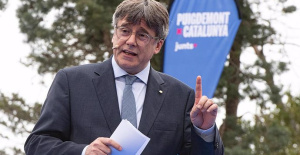 Puigdemont believes that Sánchez can present a question of trust and "clarify all doubts"
Puigdemont believes that Sánchez can present a question of trust and "clarify all doubts" RELEASE: Automation Anywhere names Tim McDonough director of marketing
RELEASE: Automation Anywhere names Tim McDonough director of marketing RELEASE: Terra Drone, Unifly and Aloft launch UTM development for AAM aimed at global markets
RELEASE: Terra Drone, Unifly and Aloft launch UTM development for AAM aimed at global markets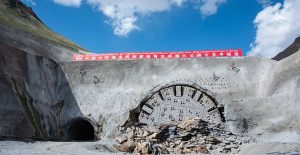 STATEMENT: The construction of the Gudauri tunnel in the Kvesheti-Kobi Highway Project of the North-Su Corridor has been successfully completed
STATEMENT: The construction of the Gudauri tunnel in the Kvesheti-Kobi Highway Project of the North-Su Corridor has been successfully completed How Blockchain in being used to shape the future
How Blockchain in being used to shape the future Not just BTC and ETH: Here Are Some More Interesting Coins Worth Focusing on
Not just BTC and ETH: Here Are Some More Interesting Coins Worth Focusing on Retrópolis brings the golden age of video games and computing to the UPV
Retrópolis brings the golden age of video games and computing to the UPV Looking for video games that value the neighborhoods of Valencia
Looking for video games that value the neighborhoods of Valencia UPV researchers improve the efficiency of air conditioning systems using a geothermal heat pump
UPV researchers improve the efficiency of air conditioning systems using a geothermal heat pump València is committed to citiverse and smart tourism to be "the reference technological hub of the Mediterranean"
València is committed to citiverse and smart tourism to be "the reference technological hub of the Mediterranean" A million people demonstrate in France against Macron's pension reform
A million people demonstrate in France against Macron's pension reform Russia launches several missiles against "critical infrastructure" in the city of Zaporizhia
Russia launches several missiles against "critical infrastructure" in the city of Zaporizhia A "procession" remembers the dead of the Calabria shipwreck as bodies continue to wash up on the shore
A "procession" remembers the dead of the Calabria shipwreck as bodies continue to wash up on the shore Prison sentences handed down for three prominent Hong Kong pro-democracy activists
Prison sentences handed down for three prominent Hong Kong pro-democracy activists ETH continues to leave trading platforms, Ethereum balance on exchanges lowest in 3 years
ETH continues to leave trading platforms, Ethereum balance on exchanges lowest in 3 years Investors invest $450 million in Consensys, Ethereum incubator now valued at $7 billion
Investors invest $450 million in Consensys, Ethereum incubator now valued at $7 billion Alchemy Integrates Ethereum L2 Product Starknet to Enhance Web3 Scalability at a Price 100x Lower Than L1 Fees
Alchemy Integrates Ethereum L2 Product Starknet to Enhance Web3 Scalability at a Price 100x Lower Than L1 Fees Mining Report: Bitcoin's Electricity Consumption Declines by 25% in Q1 2022
Mining Report: Bitcoin's Electricity Consumption Declines by 25% in Q1 2022 Oil-to-Bitcoin Mining Firm Crusoe Energy Systems Raised $505 Million
Oil-to-Bitcoin Mining Firm Crusoe Energy Systems Raised $505 Million Microbt reveals the latest Bitcoin mining rigs -- Machines produce up to 126 TH/s with custom 5nm chip design
Microbt reveals the latest Bitcoin mining rigs -- Machines produce up to 126 TH/s with custom 5nm chip design Bitcoin's Mining Difficulty Hits a Lifetime High, With More Than 90% of BTC Supply Issued
Bitcoin's Mining Difficulty Hits a Lifetime High, With More Than 90% of BTC Supply Issued The Biggest Movers are Near, EOS, and RUNE during Friday's Selloff
The Biggest Movers are Near, EOS, and RUNE during Friday's Selloff Global Markets Spooked by a Hawkish Fed and Covid, Stocks and Crypto Gain After Musk Buys Twitter
Global Markets Spooked by a Hawkish Fed and Covid, Stocks and Crypto Gain After Musk Buys Twitter Bitso to offset carbon emissions from the Trading Platform's ERC20, ETH, and BTC Transactions
Bitso to offset carbon emissions from the Trading Platform's ERC20, ETH, and BTC Transactions Draftkings Announces 2022 College Hoops NFT Selection for March Madness
Draftkings Announces 2022 College Hoops NFT Selection for March Madness


